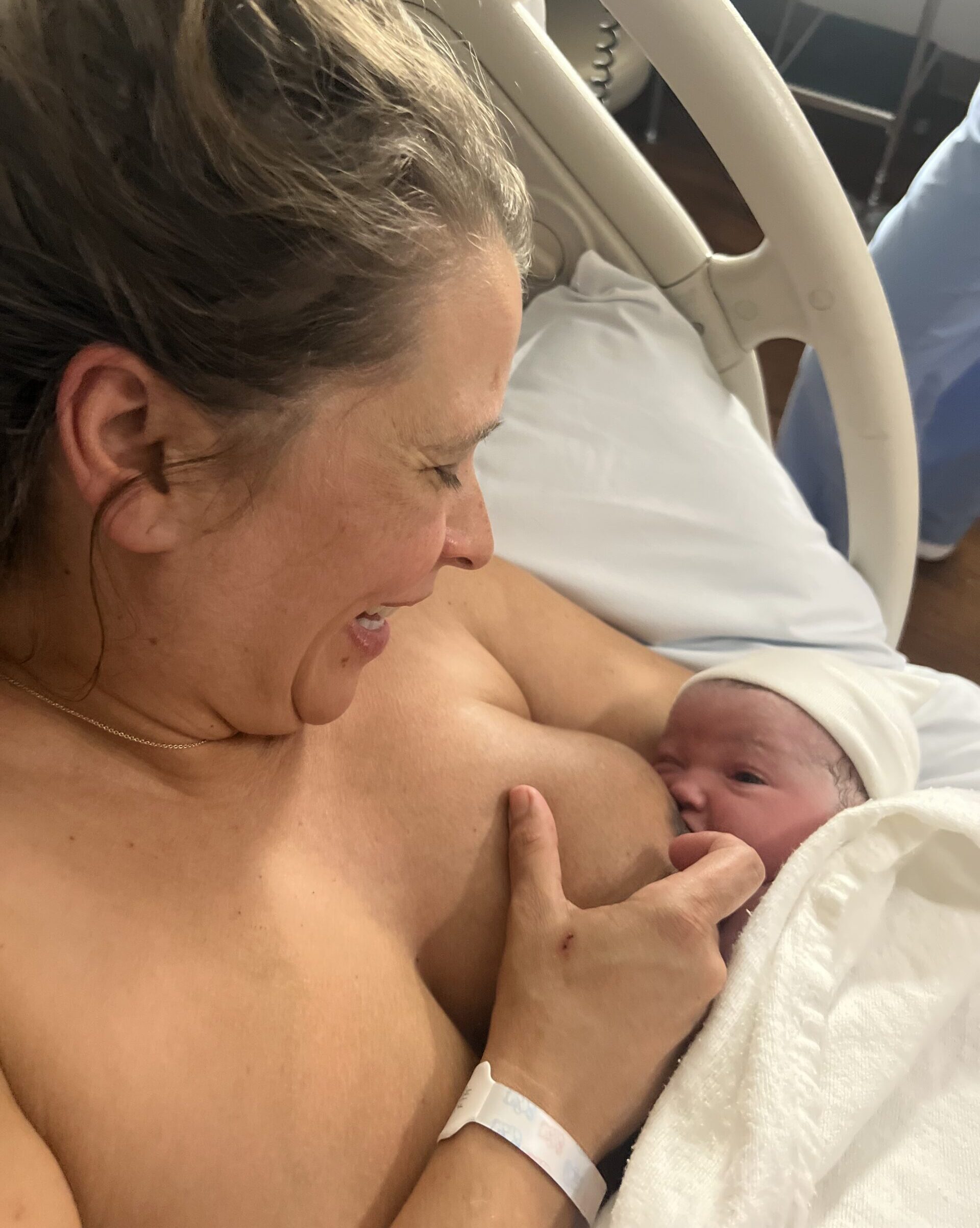When breastfeeding difficulties arise, a growing number of infants are being diagnosed with ankyloglossia, also called “tongue tie,” resulting in a surgery that medical experts believe is being overused and may not resolve the breastfeeding concerns, according to a new clinical report by the American Academy of Pediatrics.
The AAP reviews the research on diagnosis and treatment of ankyloglossia and offers evidence-based recommendations to help pediatricians care for the breastfeeding infant in its report, “Identification and Management of Ankyloglossia and its Effect on Breastfeeding in Infants,” published in the August 2024 Pediatrics (published July 29 online). The AAP encourages physicians to first consider nonsurgical options to address breastfeeding challenges rather than a frenotomy — a surgery that works to reduce restriction of an infant’s tongue movement.
“Breastfeeding is the best way to provide infants with the nutrition they need, but it can be challenging and even painful. Your pediatrician is in the best position to help identify the cause of the concerns and how to resolve them,” said Jennifer Thomas, MD, MPH, FAAP, lead author of the clinical report, which was written by the AAP Section on Breastfeeding, Council on Quality Improvement and Patient Safety, Section on Oral Health, Committee on Fetus and Newborn, and Section on Otolaryngology-Head and Neck Surgery.
“Surgery is often unnecessary for breastfeeding concerns, and there is limited research on its effectiveness. Lactation specialists and other experts are often helpful when working within a team to help support parents,” she said.
Clinical reports created by AAP are written by medical experts, reflect the latest evidence in the field, and go through several rounds of peer review before being approved by the AAP Board of Directors and published in Pediatrics.
Maternal pain is one of the most common complaints and can occur if the infant’s tongue cannot extend and elevate due to a restrictive lingual frenulum, a web of tissue that attaches the tongue to the floor of the mouth.
Pain can lead to poor milk transfer and insufficient growth. Some mothers will stop breastfeeding if they are unable to resolve the problem.
Yet, “most difficulties with breastfeeding, including pain, are not due to ankyloglossia,” said Maya Bunik, MD, MSPH, FAAP, FABM, chair of the AAP Section on Breastfeeding. “We are seeing some health care providers and clinics promoting this diagnosis and frenotomies, but they are not always in the patient’s best interest. Parents may also feel pressure from what they learn on social media about ankyloglossia when breastfeeding difficulties arise, as the awareness has grown within online communities.”
AAP Recommendations
The American Academy of Pediatrics (AAP) recommends exclusive breastfeeding for about 6 months, with continuation of breastfeeding for 2 years or longer as mutually desired by mother and infant.
The rate of ankyloglossia diagnoses in newborns range from 1.7% to 10.7%, according to three different studies focused on diagnoses in the United States, Canada, and England. One study found an almost 10-fold increase in the diagnosis of ankyloglossia between 1997 and 2012 and a further doubling between 2012 and 2016.
An ineffective latch and poor weight gain are the main considerations for a pediatrician considering a diagnosis of ankyloglossia.
The most common approach to infant frenotomy is scissor clipping of the frenulum. Recently, there has been a marked increase in the use of laser for frenotomy by physicians, oral surgeons, and dentists. No evidence supports laser over other methods of frenotomy, according to the AAP.
Other treatments supported by some health care professionals include physical therapy, craniosacral therapy, or myofascial therapies, none of which are well-studied and often require out-of-pocket costs for families.
Research on the effectiveness of frenotomy is limited, but two reviews suggest that frenotomy causes a short-term reduction in nipple pain among breastfeeding mothers and an inconsistent positive effect on infant breastfeeding, according to the clinical report.
The AAP recommends:
- Identify feeding problems early to support successful breastfeeding outcomes.
- Offer comprehensive care for infants with tongue-tie by collaborating with lactation consultants, speech-language pathologists and other specialists.
- Reserve frenotomy for cases where significant functional impairments are observed and nonsurgical interventions have failed. The procedure is safe, and poor outcomes are rare. The post-procedure care of the infant should ensure symptoms have improved.
- Guide parents toward evidence-based practices.
- Do not recommend post frenotomy stretching exercises in which the parents open the wound several times to prevent reattachment.
“It’s easy to understand why a breastfeeding parent would be eager for solutions to feeding concerns, especially when it’s touted on social media as an option,” Dr. Thomas said. “We just encourage families to first work with their pediatrician who can help them understand what is known and unknown about a diagnosis of ankyloglossia and treatment.”


















